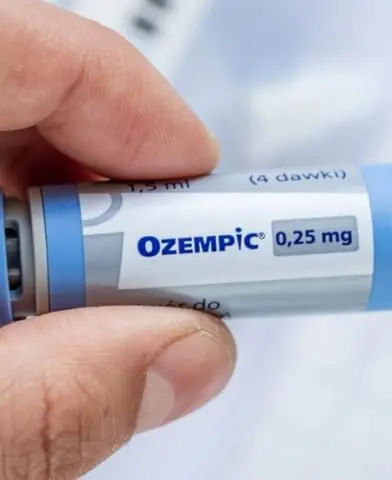
Tips To Help You Quit Drinking Alcohol
Clinically Reviewed by:
Everyone says you should stop drinking, and you know you need to cut back. So what’s next? Quitting drinking is a brave decision that leads to a healthier and more fulfilling life. With these tips, you can jump-start your recovery journey. Keep reading to find out more.

Key Takeaways
Quitting drinking is one of the most courageous decisions you can make. Here’s what you need to know:
- Replace drinking activities with positive alternatives to build new, healthy habits.
- Alcohol poses risks such as liver damage, cardiovascular issues, and increased susceptibility to various cancers.
- Therapists, doctors, and counselors play interconnected roles in addressing alcohol-related concerns.
Indiana Center for Recovery provides you with a supportive environment for lasting recovery. Call us at (844) 650-0064 to get a personalized treatment plan.
1. Understand Alcoholism
Alcoholism is a chronic disease marked by an individual’s inability to manage or stop drinking despite adverse effects. It is necessary to acknowledge the physical and mental impact it has on health to learn about alcoholism.
Excessive alcohol use can cause liver damage, cardiovascular issues, and mental health challenges and can significantly impact your quality of life.
2. Find Your Why
Quitting drinking benefits you in so many ways. Quit to improve your health or relationships. Quit to be eligible for a better job. Quit because you want to do right by your dog. Whatever the reason, choosing to quit is the first step to lasting recovery. No reason is too trivial or too silly.
Long-term Health Risks of Alcohol
Long-term alcohol consumption poses significant health risks. Prolonged use can lead to liver damage, increasing the likelihood of cirrhosis and liver cancer. Heart-related issues, such as high blood pressure and cardiomyopathy, are also prevalent.
Alcohol contributes to an elevated risk of various cancers, affecting the mouth, throat, esophagus, and beyond. Chronic alcohol use impairs cognitive function, leading to memory loss and increased dementia risk. Additionally, it weakens the immune system, making the body more susceptible to infections.
Mental Health Implications of Drinking
Excessive drinking can significantly impact mental health. Alcohol contributes to conditions like anxiety and depression.
Long-term use may exacerbate mental health disorders or trigger their onset. Alcohol disrupts sleep patterns, leading to insomnia and fatigue. It impairs judgment and emotional regulation, increasing the risk of impulsive behavior. Chronic alcohol use is linked to a higher likelihood of developing severe mental health issues.
Social Implications of Excessive Drinking
Excessive drinking carries social implications affecting individuals and communities. It can strain relationships, leading to family conflicts, friends, and colleagues. Alcohol-related behaviors may result in social isolation and withdrawal. Work performance may decline, jeopardizing job security.
Drunk driving poses a severe risk to public safety. Alcohol-related accidents and violence contribute to a burden on healthcare and law enforcement systems. Communities may face increased crime rates and strained resources.
3. Discover Your Starting Line
Begin your recovery by honestly evaluating your drinking patterns, considering frequency and quantity. Reflect on situations triggering alcohol use and any related consequences. Assess your readiness to make changes and set realistic goals. Be aware of physical and emotional reactions when not drinking. Seek input from trusted friends or professionals for additional perspectives. This self-reflection helps build awareness and lays the foundation for informed decisions about potential adjustments to your relationship with alcohol. Keep a record of your thoughts and feelings around alcohol to help you measure your progress.
4. Trust Professionals With Your Detox
Detox is the process of removing harmful substances, such as alcohol, from the body. When someone decides to quit drinking, their body needs time to adjust. Alcohol detox can be fatal.
Medical detox helps manage your withdrawal symptoms, which may include anxiety, sweating, and nausea. Medical supervision during detox is essential for safety, as severe withdrawal symptoms can occur. Do not attempt to detox on your own.
Detox programs may include medications to ease discomfort and monitor vital signs. Detox prepares you for inpatient or outpatient treatment.
5. Address The Root Problem
Often, the root of alcoholism is not the alcohol itself. Something triggered you to start drinking and keep drinking. Therapists, usually psychologists or licensed counselors, provide emotional support and teach coping strategies to help you explore underlying issues contributing to alcohol use. Counselors specializing in addiction guide you through behavioral changes to help you manage triggers.
6. Join A Support Group
The 12-step program, established by Alcoholics Anonymous (AA), is a widely embraced approach for overcoming alcohol-related challenges. This program provides a structured framework to support individuals in achieving and maintaining sobriety.
Participants engage in several steps, such as admitting powerlessness over alcohol, recognizing a higher power, and taking a moral inventory. Regular meetings create a supportive community where members share experiences and insights.
Emphasizing self-reflection, making amends, and helping others, the program fosters personal growth and accountability. The 12-step program is accessible, free, and welcomes all, making it a cornerstone in recovery. While not the sole solution, it complements various treatment approaches, offering a spiritual foundation and mutual aid.
Engaging with this program provides individuals with a roadmap for sustained recovery. A network of understanding peers reinforces the principle that overcoming alcohol addiction is a shared journey.
7. Embrace The Sober Lifestyle
Making lifestyle changes is key for individuals looking to quit drinking. Set up sober activities with friends and family. This can include a craft day, a hike, a book club, dinner, or just about anything else. Your life doesn’t have to stop because you’re not drinking.
As your sobriety network grows, you’ll discover all you had been missing when limiting yourself to activities with alcohol. Embrace the sober lifestyle to start living for yourself, not your addiction.
Frequently Asked Questions (FAQ)
The most challenging part of sobriety is facing emotions without relying on substances. Dealing with stress, sadness, or even happiness can be difficult. It’s crucial to find new coping mechanisms.
Rebuilding relationships may be complex, but it’s a vital part of recovery. Peer pressure to use substances can make it challenging, so choosing supportive friends is crucial to connecting.
Developing a routine helps in maintaining focus. Cravings might persist, but distraction and healthy activities are effective tools. Acceptance of the journey’s difficulties is essential. Connect with support groups and therapy to understand relapse as part of recovery aids in the process.
Life has so much more to offer than alcohol does. Go hiking with friends or family, swim in the ocean, travel the world, and repair your relationships with your loved ones. If you are struggling to cut back on alcohol alone, consider checking into a treatment facility.






 100% Confidential
100% Confidential